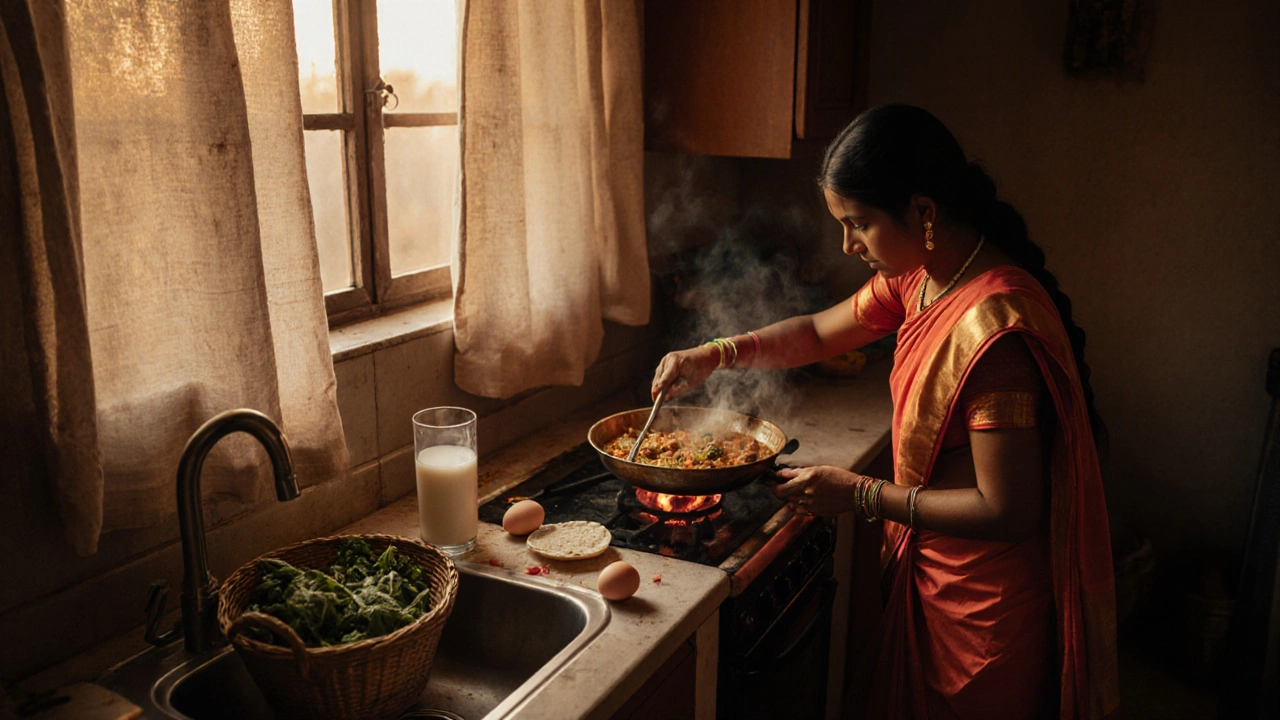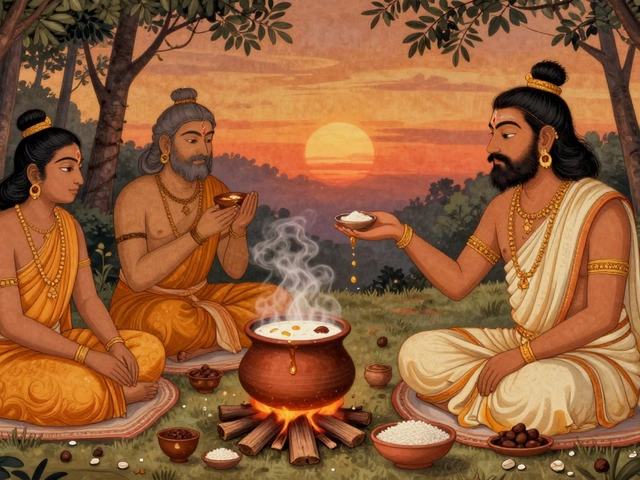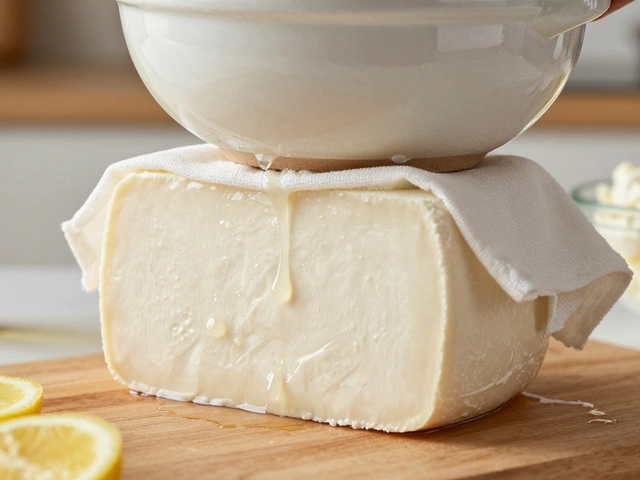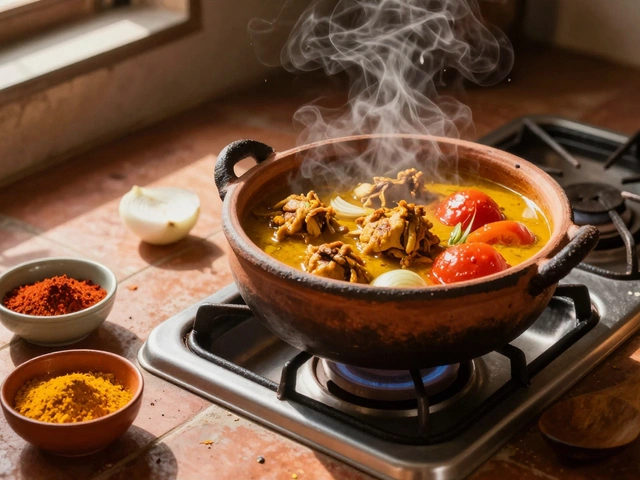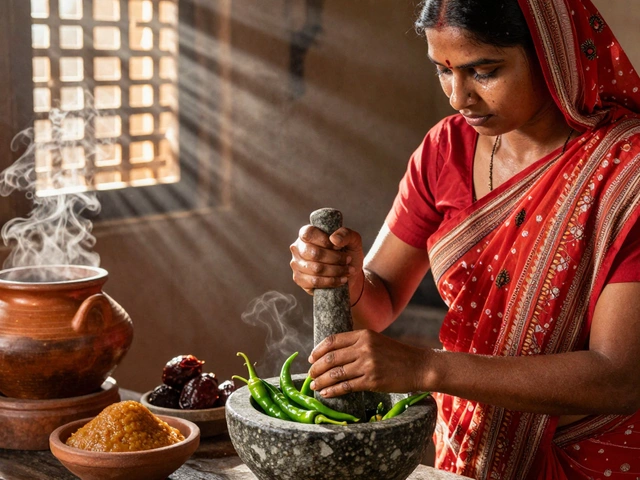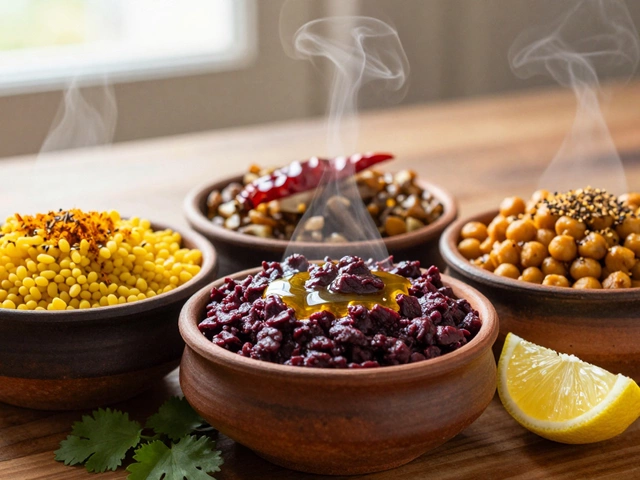Hindu Dietary Egg Checker
Check Your Context
Select factors that apply to your situation to see if eggs are typically acceptable in Hindu dietary practices.
Many people wonder if eating eggs is a sin in Hinduism. The answer isn’t simple. It’s not written in any holy text that eggs are forbidden. But for millions of Hindus, especially those who follow a strict vegetarian diet, eggs are avoided-not because they’re sinful, but because they’re seen as a form of meat.
What Does Hinduism Actually Say About Eggs?
Hindu scriptures like the Bhagavad Gita or the Manusmriti don’t mention eggs directly. There’s no verse that says, "Thou shalt not eat eggs." Instead, the focus is on ahimsa-non-violence. This principle guides many Hindus to avoid harming living beings, including animals. Eggs, especially fertilized ones, are viewed by some as potential life. Even unfertilized eggs are often grouped with animal products because they come from a living creature.
In practice, this means many Hindus treat eggs like meat. They don’t eat them alongside rice, dal, or roti. In temples, during fasting days, or in ashrams, eggs are never served. Even in homes, if someone follows a sattvic diet (pure, peaceful, and light), eggs are left out because they’re considered tamasic-associated with heaviness and dullness.
Not All Hindus Avoid Eggs
It’s a mistake to assume all Hindus are egg-free. In coastal regions like Kerala, Goa, and Odisha, many Hindus eat eggs regularly. In fact, egg curry is a common breakfast dish in some households. In urban India, younger generations are more likely to eat eggs for protein, especially if they’re not strictly religious.
There’s also a big difference between Brahmins and other castes. Traditionally, Brahmins-priests and scholars-follow the strictest vegetarian rules. But many Kshatriyas, Vaishyas, and Shudras have historically eaten meat and eggs. Today, caste-based food rules are fading, especially outside rural areas.
According to a 2023 survey by the Indian Council of Medical Research, about 38% of Indians who identify as vegetarian still eat eggs. That’s nearly 4 in 10. So while many Hindus avoid eggs, it’s not a universal rule.
Eggs vs. Dairy: Why Is Milk Okay But Not Eggs?
This is one of the most common questions. If Hindus avoid eggs, why do they drink milk and eat ghee, paneer, and yogurt? The answer lies in how these foods are produced.
Milk comes from cows without harming them. Cows are considered sacred in Hinduism. They’re seen as maternal figures-"Gau Mata," or mother cow. Dairy is harvested without killing or injuring the animal. Eggs, on the other hand, are seen as an animal byproduct with biological potential. Even unfertilized eggs are viewed as part of the reproductive system, making them morally closer to meat.
Also, dairy is used in rituals. Milk is offered to deities. Ghee is burned in fire ceremonies. Eggs have no such religious role. That cultural separation reinforces the divide.
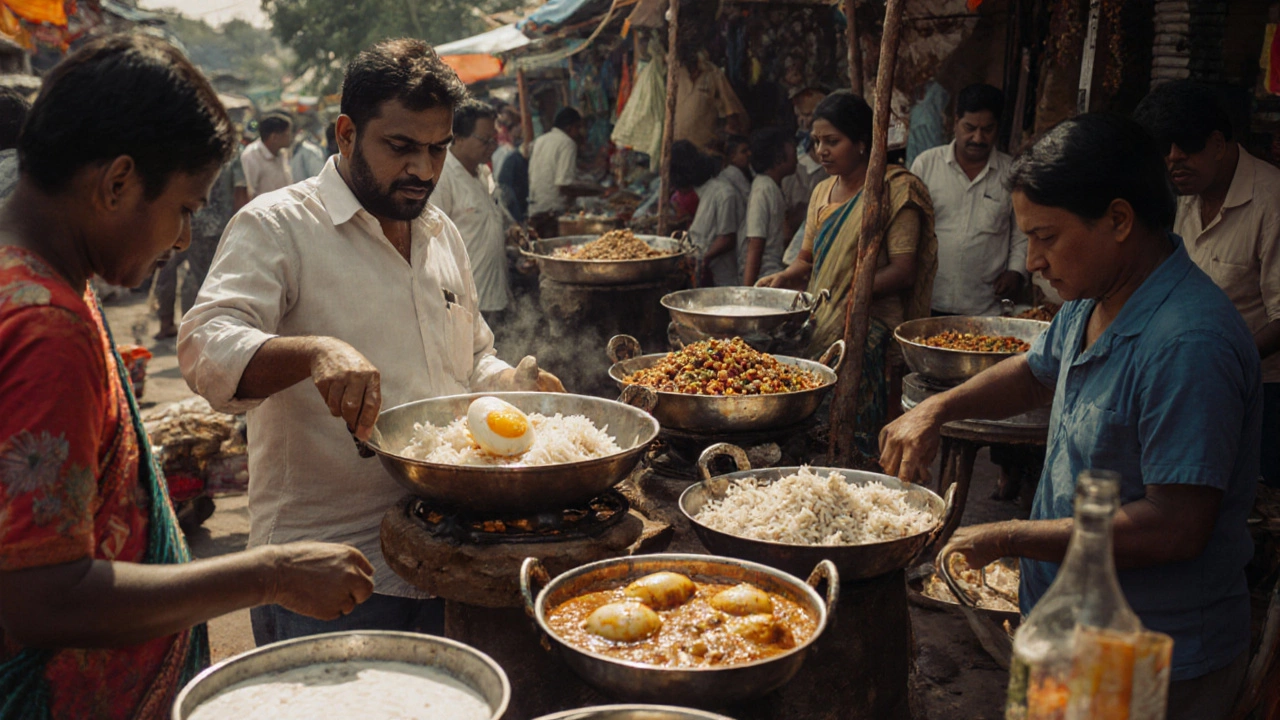
What About Veganism and Modern Hinduism?
With growing awareness of animal rights and plant-based diets, some modern Hindus are moving toward veganism. They avoid not just eggs, but also dairy. This shift is strongest among young urban Hindus in cities like Bangalore, Pune, and Delhi. They cite ethics, health, and environmental reasons-not just religion.
But even among vegans, the debate continues. Some say avoiding dairy goes against tradition. Others argue that factory farming makes even milk unethical. There’s no single answer. What’s clear is that Hinduism is evolving. Food choices are becoming more personal than prescribed.
How This Affects Indian Cooking
In traditional Indian kitchens, recipes are built around what’s acceptable. A dish labeled "vegetarian" in India almost always means egg-free. If you’re cooking for a Hindu family, assume eggs are off-limits unless they say otherwise.
Many classic dishes like chana masala, dal tadka, and aloo gobi are naturally egg-free. But some modern versions-like egg bhurji or egg curry-are common in non-vegetarian households. If you’re looking for vegetarian Indian dishes that are widely accepted, stick to lentils, legumes, vegetables, and dairy-based foods.
For example, paneer tikka, masoor dal, and methi paratha are safe bets. Even snacks like samosas and pakoras are usually egg-free-though some street vendors use egg wash for crispiness. Always ask.
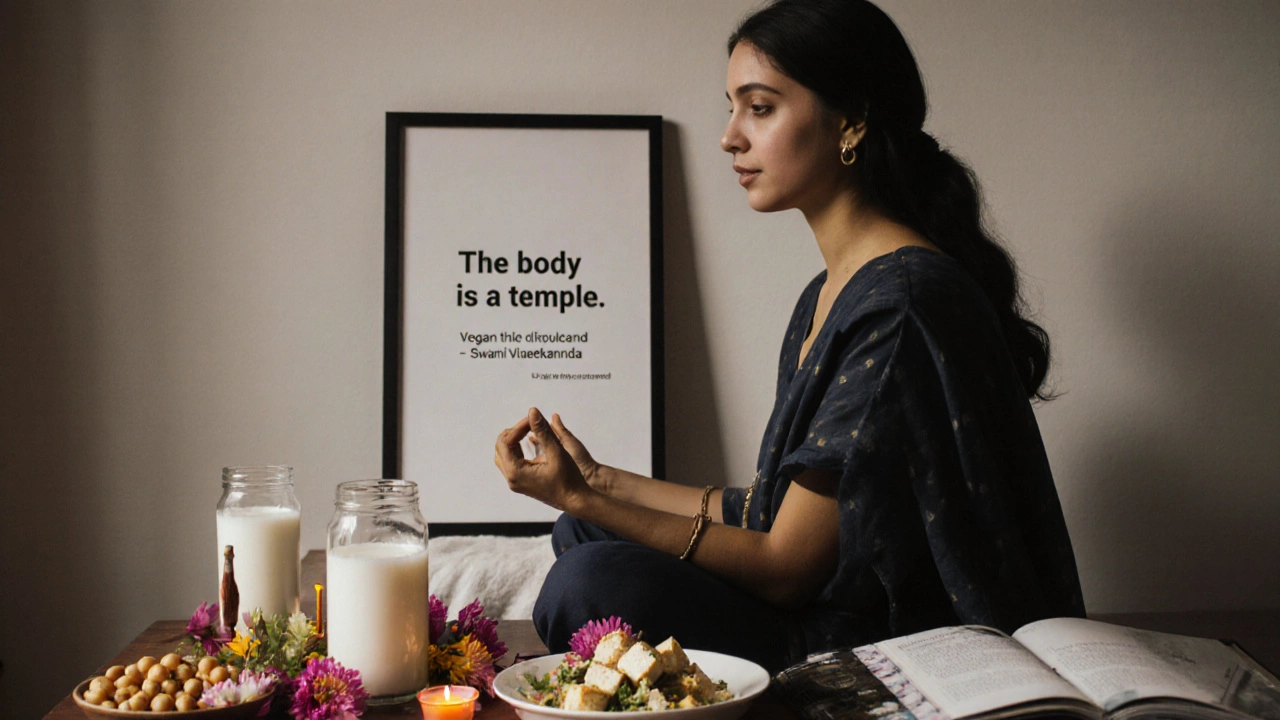
What Do Hindu Leaders Say?
Swami Vivekananda, a key figure in modern Hindu thought, said, "The body is a temple. Eat what keeps it pure." He didn’t ban eggs, but he emphasized mindfulness. Many gurus today follow the same approach: if eating eggs disturbs your peace, avoid them. If it doesn’t, and you need the protein, it’s your choice.
Organizations like the Ramakrishna Mission and ISKCON strictly prohibit eggs. But other spiritual teachers, especially in South India, are more relaxed. There’s no central authority in Hinduism that enforces food rules. It’s up to the individual, the family, and the community.
Practical Tips for Cooking or Eating With Hindus
- If you’re hosting a Hindu guest, serve egg-free meals unless you know they eat eggs.
- When reading packaged food labels, look for "egg-free"-"vegetarian" on Indian products doesn’t always mean egg-free.
- When dining out, ask: "Does this dish contain eggs?" Many restaurants in India serve both vegetarian and non-vegetarian options side by side.
- Don’t assume someone is vegetarian just because they’re Hindu. Many eat chicken, fish, or eggs.
- For recipes, use tofu, chickpea flour, or flaxseed as egg substitutes if you need to bind ingredients.
Is It a Sin? The Real Answer
No, eating eggs is not a sin in Hinduism. There’s no punishment, no divine wrath, no hellfire for eating an egg. But for many, it’s a conscious choice rooted in respect, tradition, and personal values. It’s not about sin-it’s about harmony.
Some Hindus eat eggs without guilt. Others avoid them entirely. Both are valid. What matters most is intention. If you’re eating with awareness, gratitude, and care, you’re following the spirit of Hinduism more than any rulebook.
At the end of the day, Hinduism doesn’t demand perfection. It asks for mindfulness. Whether you choose dal or egg bhurji, what you eat should nourish your body-and your conscience.
Is it okay for Hindus to eat eggs if they’re not religious?
Yes. Many Hindus who don’t follow religious practices regularly eat eggs. In cities and coastal areas, it’s common. The decision is often based on health, culture, or personal preference-not religious rules.
Do all vegetarian Hindus avoid eggs?
Most do, but not all. In India, "vegetarian" on menus means no meat, fish, or eggs. But some people call themselves vegetarian while eating eggs. This causes confusion. Always ask if you’re unsure.
Why do some Hindus eat fish but not eggs?
Fish is often seen as different from land animals. In some regions, especially Bengal and Kerala, fish is considered a separate category. It’s not grouped with chicken or beef. Eggs, however, are almost always grouped with meat because they come from birds and are seen as potential life.
Can I use eggs in a recipe meant for a Hindu family?
It’s safer not to. Most Hindu families who follow vegetarian diets consider eggs non-vegetarian. Even if they don’t eat meat, they may avoid eggs. Use substitutes like mashed banana, chia seeds, or tofu to keep the dish acceptable.
Are eggs allowed during Hindu fasting days?
No. During fasting days like Ekadashi or Navratri, most Hindus avoid all animal products-including eggs. Fasting is about purity, and eggs are considered too heavy or impure for such days. Stick to fruits, nuts, milk, and grains.
